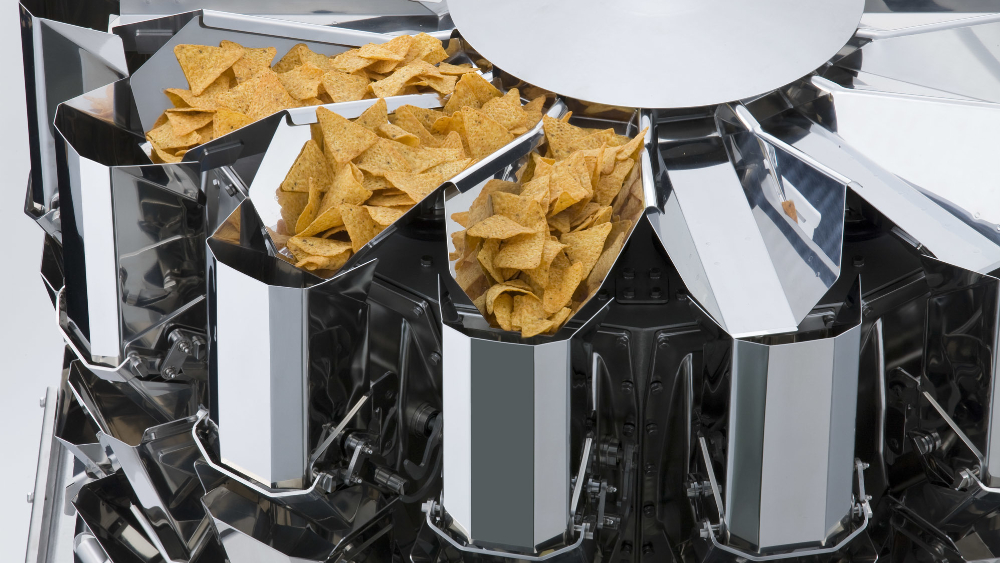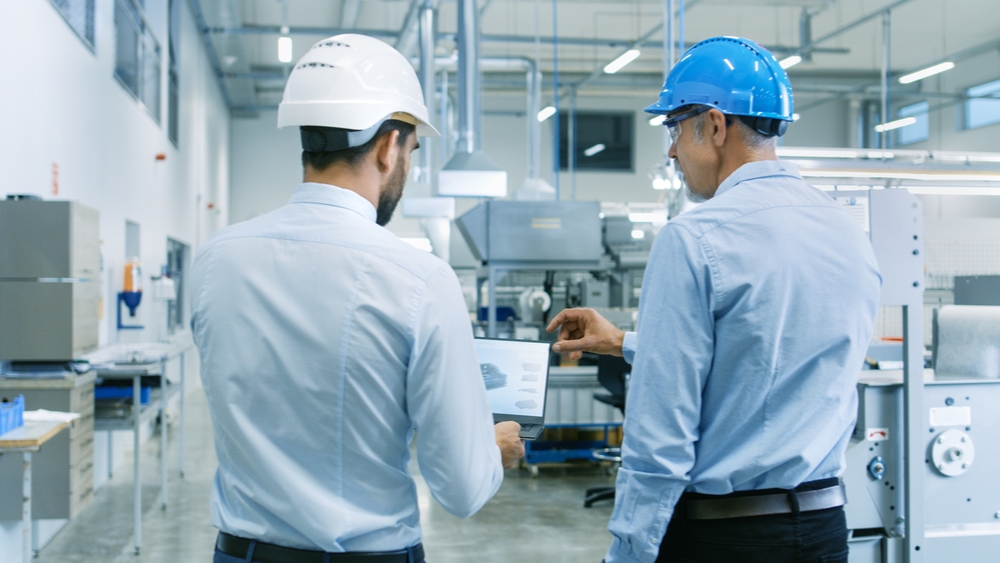How to choose the right partners and project manager to perfect your food manufacturing production line
In this blog, we explore the importance of finding the right partners whether you are considering the installation of a new line, or the extension of an existing one, or for the replacement of obsolete equipment. We think it is essential to think of any suppliers that you work with as partners, because if you are not working together to find solutions that meet your top-level business objectives, as well as stringent industry regulations, the relationship is likely doomed from the start.
- How do I find the right partners?
- How do I find partners that are capable of doing what I need?
- Do the equipment suppliers offer the right specifications?
- Do the partners have sufficient experience?
- Why is a project manager needed?
- What is the role of a project manager?
- What can a project manager do to help avoid errors?
- Data analysis
- What about maintenance and servicing?
- What about spare parts?
How do I find the right partners?
Before embarking on the selection process, you will need to ensure that prospective partners can provide precisely what you need to produce your product so that it meets industry and customer requirements. To do this you will need to carefully assess exactly what it is that you want to achieve. If you are looking at entering a new market, you will need to consider the the nature of the ingredients, packaging and labelling requirements, the desired speed of the line, how you will clean and maintain it – and much more.
Or you may wish to modify or extend an existing line in a bid to grow market share. In these circumstances, you may need to bear in mind space issues, which could have a knock-on effect on health and safety.
Once you have agreed on your production line requirements, the next step is to draw up a set of designs and specifications. Many food manufacturers seek help from external experts when it comes to formulating designs and specs, but before you begin drawing up a shortlist of potential design partners there are many things to consider, and these are just a few:
- Do I need equipment that can handle sticky or wet produce?
- Does the equipment need to be able to handle bulk-feed products?
- Do I need equipment capable of weighing and feeding-in multiple different ingredients?
- Is there equipment available that can ensure the gentle handing of fresh produce to avoid bruising and other damage?
- How can I ensure that my products do not contain contaminants?
- How do I ensure the equipment is hygienic?
- Will it pass the multifarious regulatory and inspection standards?
- How can I find reliable equipment?
- If the equipment breaks down, are genuine spare parts readily available?
While you need to be thorough at the planning stage, beware of over-specifying what you need your equipment and project management partner to do. This may seem a good, future-proofing idea, but it could lead to increased costs and the choice of a partner that is not the best fit.
However, once you have agreed your plan, you’ll need to ensure you have buy-in from all the key stakeholders in your business.

How do I find partners that are capable of doing what I need?
Having decided on the types of equipment you need, you will face the challenge of identifying suppliers that offer the right type of machinery and line solutions. This stage will likely involve a great deal of research – but it’s worth it.
You may find that you can get all the components you need from one partner or that you need to engage several partners. The advantage of working with one provider is that you will have a single point of contact for your project management. This will simplify your planning process.
However, you may find that one supplier does not offer everything you need. If you are working with multiple partners, make sure that the machinery they are individually supplying is compatible with the other equipment on the production line, to ensure efficient and accurate results.
This is one of the most complex parts of the process and it requires input from established food manufacturing experts. We will discuss this later in the blog.
Do the equipment suppliers offer the right specifications?
When comparing different equipment partners, you need to carefully consider the specifications of the machinery they offer. It is also vital to check that their equipment provides the right level of accuracy, speed, IP rating and any additional features that will help your business stand out against your competitors. You also need to ensure that their machines meet strict industry standards and regulations.
In the UK, you need to comply with Food Standards Agency and British Retail Consortium Global Standards (BRGS), the Groceries Supply Code of Practice (GSCOP), as well as EU directives and global standards such as the Global Food Safety Initiative. You should also check out local laws and any requirements relevant to the sector you operate within, such as HACCP (Hazard Analysis and Critical Control Points) and GMP (Good Manufacturing Practice).
Diligent equipment suppliers ensure that their equipment is industry compliant and are always innovating to launch new and improved equipment to help their customers achieve the best possible results.
This stage also needs forensic investigation, as the best equipment suppliers seek to improve product specifications as often as they can. So before signing on the dotted line, ask the manufacturer if it is working on a new, better version of the machine you like, how long it will be until the upgraded version is available to purchase and are there any upgrade paths for buyers. It is best to avoid acquiring machinery that may soon go out of production, so always check this before you purchase or you could find yourself having to find cash for a replacement much sooner than makes commercial sense.
Do the partners have sufficient experience?
You must choose a partner with the right type of experience for your food processing business. They need to be able to demonstrate an understanding of the kinds of equipment required at every stage of your manufacturing process and which equipment is best suited for which products.
Because it is generally the case that food processing production lines are made up of machinery and equipment made by a multitude of suppliers, you must ensure that each machine-maker is comfortable working collaboratively with other suppliers – who may themselves be potential rivals.
In more complex situations, where you are having to deal with many different suppliers, with different work cultures, working practices and personalities, it would be wise to appoint a first-rate project manager.
The project manager plays a crucial role in getting your operation up and running, to maximum productivity, while meeting regulatory and customer demands. They need to be able to negotiate equipment prices on your behalf, so you must feel you’re able to trust them. Ask them to provide case studies and testimonials. Check that they have good relationships with suppliers – but that they don’t have allegiances with any particular suppliers. They also need to be flexible and adaptable. Production line installations can take many months to perfect, so your partners must be able to demonstrate endurance, patience, and an ability to be very flexible and adaptable as a lot can change along the way.
They also need to be present, whether that be in a physical sense or regularly emailing and calling suppliers and fitters to ensure they stay on track to deliver your project on time.

Why is a project manager needed?
With food production lines becoming increasingly speedy and complex, having to cope with multiple raw material inputs, absolute accuracy in terms of weights, measures, packaging and labelling, not to mention the elimination of any contaminants, the need for integrated solutions to cover the feeding, weighing, checkweighing, dispensing and inspection of your products requires a carefully calibrated and streamlined process.
The food production industry is also highly regulated, with food safety at the heart of the regulations, so it’s vital that food manufacturers seek out the right advice for their production lines. Existing and potential new customers want manufacturers to be fast, efficient, productive and agile. Manufacturers must show that their lines are hygienic, safe and able to pass regulatory scrutiny.
To satisfy all these demands when installing equipment, it’s crucial to engage a project manager capable of recommending impeccable equipment suppliers and managing the project from inception to completion. Ideally, food manufacturers need a project manager who can be a single point of contact from start to finish. This will simplify the process and free up management time for the day to day running of their business.
What is the role of a project manager?
A good project manager will begin by gaining a deep understanding of the manufacturer’s operations, their goals and objectives. They will then work with the food manufacturer from the design stage, the identification of compatible and efficient equipment, installation, testing and commissioning. Some project managers are also able to provide training and ongoing support.
The essence of exemplary project management is the ability to work well with everyone who is contributing to the job – from the designers, equipment suppliers and engineers, to the client’s management team and those who will be operating the line, maintaining it and cleaning it – and so on.
In other words, not only must your project manager be an expert in your particular field of food manufacturing, they must also be highly personable, persuasive and possess a ‘can-do’ attitude.
It is also worth considering the range of services your partner offers. Beyond providing you with the equipment you need, you will also want a partner that can assist with fitting the equipment and ensuring that all the parts work together smoothly.
What can a project manager do to help avoid errors?
Provide detailed advice on the best equipment
An expert project manager, with a verifiable track record, will know and understand the full range of equipment that each client needs. Once they have detailed knowledge of a manufacturer’s individual needs, whether it be to produce fresh meat or fish, fruit and vegetables or cereals, snacks, ready-meals or dairy – and the list goes on – a full qualified and experienced project manager will be able to recommend a bespoke range of the very best equipment from verified suppliers.
Be able to work effectively to budget
Food production project managers will work within your budget to recommend the best machinery you can afford, to maximise the chances of avoiding equipment failure and consequent downtime.
Ensure the installation goes smoothly
One of the most important project management roles is to ensure that the various machines operating in your production line are compatible with one another. They will take care of every aspect of line installation, organise a dry run to check that all the machinery is working as it should be and that all the electricals are generating the correct signals and functioning properly.
Run tests with the product present to eradicate any product/machinery glitches
Expert project managers can quickly identify any part of the production line that is not operating at maximum productivity levels. Once they are certain that all the equipment is running smoothly, they will ramp-up the speed and introduce the products. The ramp-up, or commissioning period, must be done with caution, so that if there are any issues, damage to other equipment can be avoided.
Sign-off
Once the ramp-up and the commissioning period has been completed, your experienced project manager will arrange a Site Assessment Test (SAT) to ensure equipment functionality. A good project manager will also recommend that a PUWER assessment is carried out to ensure the equipment is suitable and safe for its intended purpose.

Data analysis
One of the main challenges for the food processing industry is to reduce manufacturing costs and waste. The best way to achieve this is to incorporate real-time analysis into your production line. This means you need to check that prospective partners can provide the tools and systems which enable continuous analysis and control of processes, including real-time sensing and analysis of both raw materials and in-process materials. This way, the product quality is controlled during processing and not determined after production.
The latest x-ray inspection machines offer real-time analysis of potential contaminants so it is worth checking whether your partner can equip you with these if needed.
The gold standard here is to find a partner that is capable of providing instant live data collection that can be analysed by line, product, shift and site. This provides manufacturers with the all-important audit records that will help them avoid mistakes in the future. This increases efficiency, accuracy and productivity.
Given the demand of supermarket customers and the highly regulated nature of the food manufacturing industry, real-time data provides accurate production monitoring ensuring compliance to customers’ specifications. Additionally, product performance reports help improve line productivity and drive down wastage.
What about maintenance and servicing?
It’s also essential to choose a partner that can provide maintenance and servicing solutions as this will reduce the risk of downtime. Also, are they able to carry out repairs on-site and how quickly can they do so? This will give you peace of mind that you have the right help in place during the lifetime of the project, including if anything should go wrong – and this can lead to a great partnership. In addition, it allows you to reduce the total cost of ownership.
What about spare parts?
Clearly, if your equipment isn’t functioning at optimum performance or breaks down, you need fast access to genuine spare parts. It is therefore vital to check that your partner can supply and fit spare parts in a timely manner, to reduce downtime and minimise the associated costs.

Parting words
Food safety is a global concern, and the food processing industry is one of the most highly regulated in the world. Nevertheless, mistakes happen at an alarming rate, with food contamination being the biggest worry for any manufacturer of food or orally deliverable pharmaceutical products.
Given that one of the primary sources of food contamination is the machinery that products are prepared on, it is vital to find the right partners and a highly experienced project manager who can ensure every aspect of your production line is fit for purpose.
For further information about Yamato’s project management services, contact our Projects Manager Adam Hazeldine below.

